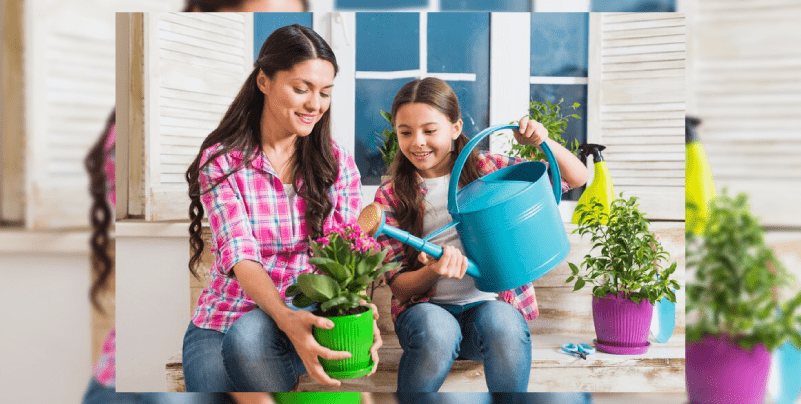
Looking to spice up your indoor jungle with some unique green beauties? Look no further! Baldur garten has some of the best home plants to make your space pop. We’ve rounded up 10 rare and unusual houseplants that will not only make your home look amazing but will also have all your friends going, “Wow, where did you get that?” Get ready to meet your new plant crushes!
1. Variegated Monstera (Monstera deliciosa ‘Variegata’)
The Variegated Monstera is a stunning plant known for its large, split leaves adorned with striking white or yellow variegation. This plant, native to the tropical forests of Central America, has become a favorite among collectors due to its rarity and dramatic appearance.
Care Tips:
– Light: Bright, indirect light is ideal. Direct sunlight can scorch the variegated parts of the leaves.
– Water: Keep the soil moist but not waterlogged. Allow the top inch of soil to dry out between waterings.
– Humidity: High humidity is essential. Regular misting or a humidity tray can help maintain moisture levels.
– Temperature: Prefers temperatures between 65-80°F (18-27°C).
2. Pink Princess Philodendron (Philodendron erubescens ‘Pink Princess’)
The Pink Princess Philodendron is renowned for its vibrant pink variegation against dark green leaves. This eye-catching plant hails from Colombia and has become a symbol of status among plant enthusiasts due to its rare and unpredictable variegation patterns.
Care Tips:
– Light: Thrives in bright, indirect light. Insufficient light can reduce the pink variegation.
– Water: Water when the top 1-2 inches of soil are dry. Overwatering can lead to root rot.
– Humidity: Enjoys high humidity. A humidifier or pebble tray can be beneficial.
– Temperature: Keep in a warm environment, ideally between 60-85°F (16-29°C).
3. String of Hearts (Ceropegia woodii)
The String of Heart, also known as Rosary Vine, is a delicate trailing plant with heart-shaped leaves and a unique vine-like growth habit. Native to South Africa, it’s prized for its cascading foliage and ease of care.
Care Tips:
– Light: Prefers bright, indirect light but can tolerate some direct sunlight.
– Water: Allow the soil to dry out between waterings. Overwatering can cause the roots to rot.
– Humidity: Average household humidity is sufficient, but it appreciates occasional misting.
– Temperature: Performs well in temperatures between 60-80°F (16-27°C).
4. Black Velvet Alocasia (Alocasia reginula)
Black Velvet Alocasia is a striking plant with deep green, almost black, velvety leaves and contrasting white veins. This plant, native to Borneo, is a true showstopper but requires specific care to thrive.
Care Tips:
– Light: Bright, indirect light is ideal. Avoid direct sunlight to prevent leaf burn.
– Water: Keep the soil consistently moist but not soggy. Allow the top layer to dry out slightly between waterings.
– Humidity: Requires high humidity. Use a humidifier or place the plant in a terrarium for best results.
– Temperature: Prefers temperatures between 60-80°F (16-27°C).
5. Hoya Kerrii (Sweetheart Plant)
Hoya Kerrii, commonly known as the Sweetheart Plant, is loved for its thick, heart-shaped leaves. Originating from Southeast Asia, this slow-growing plant is often sold as a single leaf cutting, making it a popular gift for romantic occasions.
Care Tips:
– Light: Bright, indirect light is preferred. Can tolerate some direct sunlight.
– Water: Water sparingly. Allow the soil to dry out completely between waterings.
– Humidity: Average household humidity is sufficient, but it can benefit from occasional misting.
– Temperature: Thrives in temperatures between 60-80°F (16-27°C).
6. Chinese Money Plant (Pilea peperomioides)
The Chinese Money Plant, or Pilea peperomioides, is known for its unique, pancake-like leaves and rapid growth. Native to the Yunnan Province of China, it has gained popularity for its quirky appearance and ease of propagation.
Care Tips:
– Light: Bright, indirect light. Avoid direct sunlight which can scorch the leaves.
– Water: Water when the top inch of soil is dry. Ensure good drainage to prevent root rot.
– Humidity: Prefers moderate humidity levels.
– Temperature: Best kept in temperatures between 60-75°F (16-24°C).
7. Anthurium Clarinervium
Anthurium Clarinervium is admired for its large, velvety, heart-shaped leaves with prominent white veins. Native to Mexico, this plant makes a dramatic statement in any collection.
Care Tips:
– Light: Prefers bright, indirect light. Too much direct sunlight can damage the leaves.
– Water: Keep the soil consistently moist but not waterlogged. Allow the top layer to dry out slightly between waterings.
– Humidity: Requires high humidity. Regular misting or a humidifier can help.
– Temperature: Thrives in temperatures between 65-80°F (18-27°C).
8. Variegated String of Pearls (Senecio rowleyanus ‘Variegata’)
The Variegated String of Pearls is a stunning succulent with small, bead-like leaves that have cream-colored variegation. Native to South Africa, this trailing plant is perfect for hanging baskets.
Care Tips:
– Light: Needs bright, indirect light to maintain its variegation.
– Water: Allow the soil to dry out completely between waterings. Overwatering can be fatal.
– Humidity: Low to moderate humidity is sufficient.
– Temperature: Prefers temperatures between 70-80°F (21-27°C).
9. Blue Star Fern (Phlebodium aureum)
The Blue Star Fern is known for its unique, blue-green fronds that add a pop of color to any collection. Native to tropical and subtropical regions of the Americas, it’s a relatively low-maintenance fern.
Care Tips:
– Light: Prefers bright, indirect light but can tolerate lower light conditions.
– Water: Keep the soil consistently moist but not soggy. Avoid letting the soil dry out completely.
– Humidity: Enjoys high humidity. Regular misting or a humidity tray is beneficial.
– Temperature: Thrives in temperatures between 60-75°F (16-24°C).
10. Cebu Blue Pothos (Epipremnum pinnatum ‘Cebu Blue’)
The Cebu Blue Pothos is a rare variety known for its metallic, bluish-green leaves. Originating from the Philippines, it’s an easy-to-care-for plant that can adapt to various conditions.
Care Tips:
– Light: Bright, indirect light is ideal. Can tolerate lower light levels but growth may slow.
– Water: Water when the top 1-2 inches of soil are dry. Ensure good drainage to prevent root rot.
– Humidity: Prefers moderate to high humidity.
– Temperature: Best kept in temperatures between 60-80°F (16-27°C).
Incorporating Rare Plants into Your Home
Integrating rare and unusual houseplants into your home can be both aesthetically pleasing and rewarding. Here are some tips to help you showcase these unique plants:
1. Display Areas: Place your rare plants in areas where they can be admired, such as living rooms, offices, or bedrooms. Use plant stands, hanging planters, or shelves to create attractive displays.
2. Grouping: Group plants with similar care requirements together. This not only makes maintenance easier but also creates a cohesive and lush display.
3. Lighting: Ensure each plant receives the appropriate amount of light. Use grow lights if necessary to supplement natural light, especially in darker rooms.
4. Humidity Solutions: Many rare plants require high humidity. Consider using a humidifier, misting regularly, or placing plants in naturally humid areas like bathrooms or kitchens.
5. Regular Maintenance: Keep a close eye on your rare plants for any signs of stress or pests. Regularly check for proper soil moisture, clean leaves, and provide necessary nutrients through fertilization.
Conclusion
Rare and unusual houseplants add a unique and personal touch to any indoor space. Their distinctive appearances and specific care requirements can transform your home into a botanical sanctuary. By understanding the needs of each plant and providing the right environment, you can enjoy the beauty and satisfaction of cultivating these extraordinary plants. Whether you’re a seasoned plant collector or a beginner looking to expand your green thumb, there’s always something new and exciting to discover in the world of rare houseplants.
Embrace the journey of growing these botanical treasures, and let your home flourish with the diverse and captivating charm of rare and unusual houseplants.










